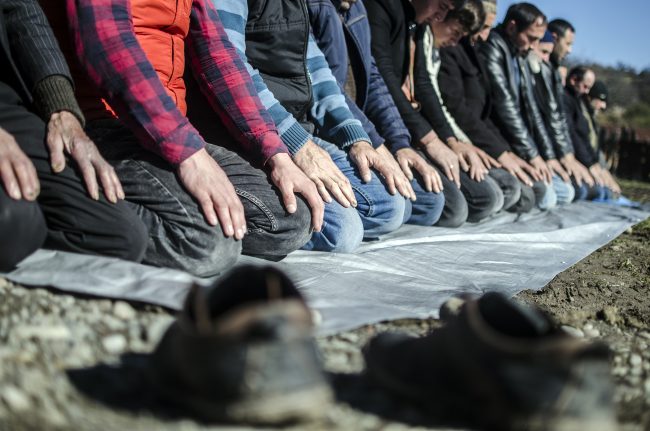


 On 15 November, the State Agency for Religious Issues announced an initiative to grant ‘Georgian tolerance’ the status of intangible cultural heritage. Historically, Georgia may have exhibited relatively high levels of tolerance, with many pointing to the reign of King David the Builder in the 12th century. David is celebrated for presiding over the start of the country’s golden age, and many point to his encouragement of other ethnicities settling in Georgia as a good example of Georgian tolerance.
On 15 November, the State Agency for Religious Issues announced an initiative to grant ‘Georgian tolerance’ the status of intangible cultural heritage. Historically, Georgia may have exhibited relatively high levels of tolerance, with many pointing to the reign of King David the Builder in the 12th century. David is celebrated for presiding over the start of the country’s golden age, and many point to his encouragement of other ethnicities settling in Georgia as a good example of Georgian tolerance.
Yet, recent events in Georgia like the far-right March of Georgians, numerous incidents targeting Georgia’s Muslim community, and the 2013 riots during International Day Against Homophobia suggest Georgia has a ways to go when it comes to tolerance.
[Read on OC Media: Muslims in Batumi are becoming impatient for second mosque]
Survey data also consistently suggest modern day Georgia lacks tolerance towards minorities of all stripes, though is more tolerant than neighbouring Armenia and Azerbaijan. According to Caucasus Barometer data, Georgians generally disapprove of Georgian women marrying other ethnicities, a common proxy for tolerance in international surveys.
The graph below shows the net approval rating of women marrying other ethnicities between 2009 and 2015. Net approval ratings show whether attitudes are more positive or negative towards an individual or subject overall. The only positive net approval rating is for Russians and only in 2015. Every other net approval rating is less than zero suggesting more Georgians disapprove of women of their ethnicity marrying other ethnicities than approve. This includes many ethnicities which the Ministry of Culture is presumably celebrating the country’s tolerance towards such as Armenians, Azeris, Abkhaz, Jewish people, and Ossetians.
The data also shows a clear religious bias. The chart below shows the average net approval of women in Georgia marrying ethnicities associated with Christianity and other religions. The graph shows that ethnicities traditionally associated with religions besides Christianity are less approved of by about 20 percentage points.
Note: Ethnicities associated with Christianity in the above graph include Russians, Armenians, Armenians living in Georgia, Ossetians, and Abkhaz. Ethnicities not associated with Christianity include Azeris, Azeris living in Georgia, Jewish people, Kurds, and Turks.
While Georgia lacks in tolerance, when compared with its neighbors in Armenia and Azerbaijan, Georgia is welcoming. The graph below shows the net approvals for each ethnicity on the Caucasus Barometer between 2009 and 2013. The general pattern holds whether or not Armenians and Azerbaijanis attitudes towards each other are taken into account.
Note: Average net approvals were calculated using all ethnicities that were asked about in all three countries as well as the two South Caucasian neighbors of each country. Titular ethnicities were excluded from the calculation. Caucasus Barometer was not carried out in Azerbaijan in 2015.
While Georgia is more tolerant than its neighbors, it still has a long way to go, especially if it wants to match the famed tolerance of King David the Builder.
Dustin Gilbreath is a Policy Analyst at CRRC-Georgia. The views presented in this article are the author’s alone and do not represent the views of CRRC-Georgia or any related entity.
The data used in this article is available from CRRC-Georgia’s Online Data Analysis Tool.








